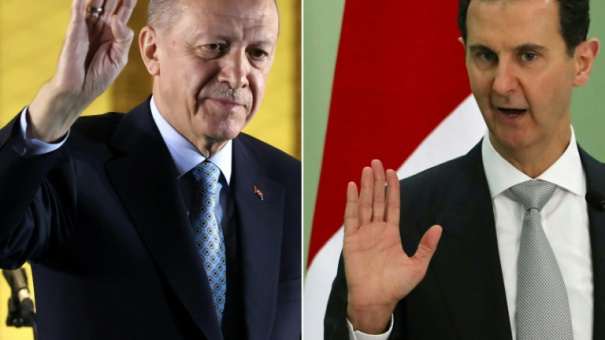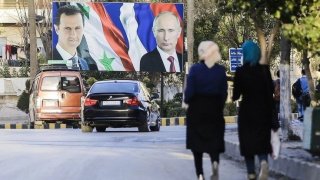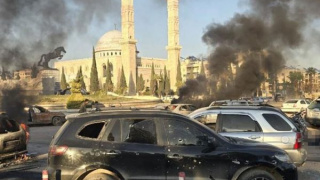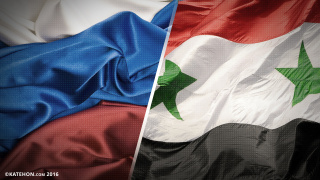Turkish-Syrian Talks
Iraq hopes to host talks between the Syrian and Turkish leaders sometime in the near future, with both informally warring parties expressing interest in this at the highest levels, but President Assad clarified that any such meeting must address his country’s “core” issues. These weren’t explicitly stated, but they’re considered to be the withdrawal of Turkish troops from Northern Syria and an end to Turkish support for armed anti-government groups that Damascus earlier designated as terrorists.
Turkiye conventionally intervened in Northern Syria in several high-profile campaigns over the years on the pretext of preventing armed Kurdish groups from establishing a corridor along their border. Although some of these saw its forces enter areas east of the Euphrates, Turkiye has been reluctant to go deep into that part of the country due to the presence of American troops, who protect their Kurdish allies. US support for Kurdish groups in Syria that Ankara deems to be terrorists has severely harmed bilateral ties.
As for the second part of the equation, Turkiye has comprehensively supported Islamist militants in Syria since the start of the country’s multi-sided conflict in 2011. Observers believe that this is driven by Turkish President Erdogan’s ideological affinity for the Muslim Brotherhood. Had they succeeded in toppling the Syrian government, then that country would have turned into a Turkish client state. They failed, yet Turkiye still continues to support them, perhaps because it’s uncomfortable admitting defeat.
These calculations might change in light of the latest clashes between Turkish troops and their notional allies in Northern Syria, which were prompted by a wave of anti-migrant violence in Turkiye that targeted Syrian nationals after claims that one of them sexually harassed a child. A significant share of the estimated 3,5 million Syrian refugees in Turkiye are thought to be Islamist-aligned, and some of them could function as fifth columnists in the event of a split between Turkiye and its Northern Syrian allies.
Accordingly, it’s imperative for Turkiye to create the conditions for them to voluntarily return to Syria, after which a large-scale repatriation campaign could be commenced similar in spirit to the one that Pakistan is implementing against Afghan refugees after falling out with its Taliban allies. This could be achieved in theory if Presidents Erdogan and Assad agree on a roadmap for reasserting the secular Syrian state’s writ over presently Turkish-backed and Islamist-controlled parts of the country.
That would entail a typical disarmament, demobilization, and reintegration (DDR) campaign, though the new lack of mutual trust between Turkiye and its Northern Syrian allies might lead to them rebelling, plus they’d probably also demand some level of autonomy that Damascus might not want to grant. These issues would have to be addressed during the prospective talks between their leaders, as would the future of Turkish troops in Syria, including on the eastern side of the Euphrates.
Those armed US-backed Kurdish groups postponed their local elections under American pressure after Turkiye strongly intimated that it might launch yet another operation against them to preempt this vote or punish them immediately after it was supposed to be held. Even if both sides went through with this latest potential escalation sequence, it likely wouldn’t have resolved their dilemma due to the American factor, which has thus far kept Turkiye from finishing the job due to fear of clashes with its NATO ally.
Nevertheless, the Ukrainian Conflict and the Israeli-Hamas War have stretched America’s military capabilities like never before, and it’s possible that Turkiye and Syria now believe that they could jointly pressure the US to withdraw from its bases east of the Euphrates if they coordinate their moves. After all, the US is pressured to retain the optics of Trans-Atlantic unity amidst what it presents as Russia’s challenge to the West, while any emergency arms that go to the Kurds could be at Israel’s expense.
If President Erdogan obtains the political will to convince the US that Turkiye is serious about fighting a proxy war with it in Syria on anti-terrorist and national security grounds, which could only come about after a rapprochement with President Assad, then it might decide to withdraw instead of risk that. The precedent of its pulling troops out of Niger, where it recently completed construction of a $100 million drone base, shows that the US is pragmatic enough to be flexible under pressure if it really wants to.
Unlike in Niger where it left without any preconditions, however, it might request that its Kurdish allies be promised a level of autonomy on par with whatever might be proposed for Turkiye’s Islamist ones. Turkiye might agree to that only if a DDR campaign is carried out and the US-backed local Kurdish authorities are replaced with Turkish-backed ones like in Northern Iraq, though without regional autonomy, just some socio-political privileges like language rights and perhaps a local political party.
Reflecting on the insight that was shared in this analysis, the sticking point that’s holding up the planned Iraqi-hosted summit between Presidents Erdogan and Assad is Turkiye’s continued military deployment in Syria and support for Islamist anti-government militants that Damascus deems to be terrorists. Turkiye is newly motivated to create the conditions for Syrian refugees to return after falling out with its allies there, but this can only realistically be achieved by creatively reinvigorating that country’s peace process.
Therein lies the role that those two informally warring parties’ shared Russian partner can play in suggesting a new formula wherein some level of local autonomy is granted to the Turkish-controlled parts of Northern Syria, even if this is only for a temporary period of time during the DDR process. Forthcoming referenda, whether at the national or regional/local level, could be included in this framework as a “goodwill gesture” for ensuring a mutually “face-saving” Turkish-Syrian agreement.
Partially replicating the Minsk Accords has its drawbacks, but if both sides are sincere in keeping their commitments, then it’s possible that the aforesaid proposals could be implemented. The initiation of this process could then see an attempted replication of this same formula in Northeast Syria with the US-backed Kurds. To move the process along, Turkiye might also signal its seriousness in militarily resolving this issue once and for all if a similar deal isn’t reached between those Kurds and Damascus.
No peace plan is perfect, and all parties must compromise on their maximalist objectives if they’re unable to achieve a decisive victory over their opponents as is the case in the multi-sided Syrian Conflict. It’s long-overdue for Presidents Erdogan and Assad to reach an agreement to this end, at least with respect to resolving their dilemma in Turkish-backed and Islamist-controlled Northern Syria, which could then improve the odds of them resolving the one in US-backed and Kurdish-controlled Northeast Syria.









